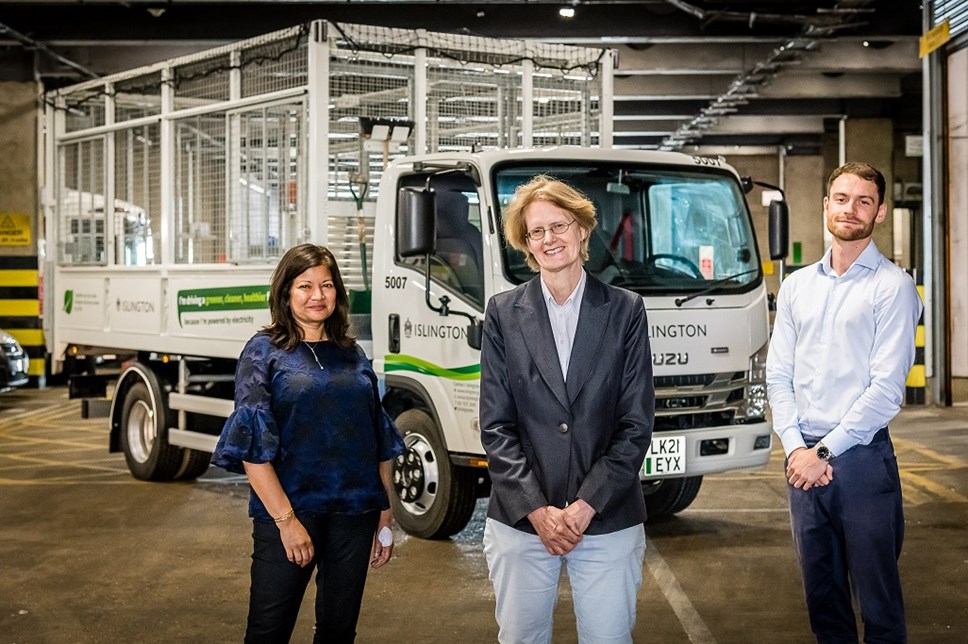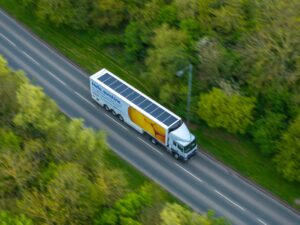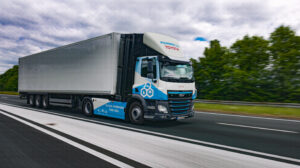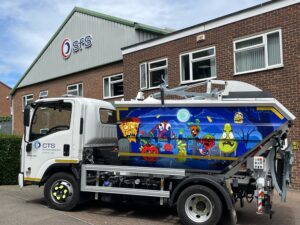Islington Council has received the borough’s first fully electric cage tippers to electrify the Council’s fleet of vehicles further. The 7.5-tonne vehicles produce no exhaust emissions and help ensure that local people have cleaner, healthier air to breathe.
Each vehicle saves approximately 2,300 litres of diesel per year. This saving equates to an annual reduction of roughly eight tonnes of carbon dioxide and 1.6 tonnes of the toxic air pollutant nitrogen dioxide. They also save more than £2,300 in fuel costs, and maintenance costs are also lower due to the vehicles needing no oils or filter changes.
Isuzu chassis and Paneltex bodies
A total of six cage tipper vehicles, which have been built on an Isuzu chassis with a Paneltex body, will be used in the borough. Two have arrived recently, and a further four to come later this month.
They form part of the Council’s work to electrify its fleet as one of many steps towards achieving a net-zero carbon Islington by 2030. By the time all six vehicles arrive, 11% of the Council’s nearly 500-strong fleet will be electric.
The cage tipper vehicles will be based at the Waste and Recycling Centre on Cottage Road, which will house most of the Council’s electric fleet. The Council is working on upgrading the site to create sufficient power and electric vehicle chargers, including installing a new substation and high voltage connection.
Good Growth Fund
This upgrade was made possible after the Mayor of London, Sadiq Khan, announced last year that the project had been awarded £1.5 million through the Good Growth Fund, with Islington Council matching this by providing £1.5m in funding. The Council has since committed a further £2.7m to the project, taking the total cost to £5.7million.
Innovation
The vehicle charging equipment is being provided by Islington-based business Joju Solar – of which approximately 40 smart chargers will be delivered through the Good Growth Fund – in addition to the on-site power upgrade, supporting the eventual electrification of over 170 vehicles in the Council’s refuse fleet.
Greener and cleaner Islington
Cllr Rowena Champion, Islington Council’s Executive Member for Environment and Transport, said: ‘Creating a net-zero carbon borough by 2030 is one of the Council’s leading priorities, and we know that achieving this will create a greener, cleaner, and fairer Islington for everyone.
‘The ongoing electrification of our fleet will help to provide local people with cleaner air to breathe and to tackle air pollution, which remains a significant health emergency across London.
‘The arrival of these fully-electric cage tipper vehicles is another milestone as we work to make our Waste and Recycling Centre as green as possible, and we look forward to seeing these environmentally-friendly vehicles in the borough.’
eCollects
Work on the upgrade of the Waste and Recycling Centre is due to begin in October 2021, and other council sites like Prichard Court and 222 Upper Street are currently having additional charging units installed.
As well as investing in greener vehicles, including London’s first eCollect electric refuse collection trucks, the Council is also working to reduce the size of its fleet to help clean the air that locals breathe.
Reducing emissions
Islington’s work to electrify its fleet is one of several measures to reduce vehicle emissions in the borough. The Council is also creating people-friendly streets, has implemented 35 School Streets, and has signed up for a London-wide campaign encouraging businesses to tackle the air pollution caused by idling engines.
Mayoral Enterprise Action Partnership
Shirley Rodrigues, London’s Deputy Mayor for Environment and Energy, said: ‘We’re delighted to support Islington Council to electrify its entire waste and recycling fleet through the Mayor’s London Enterprise Action Partnership. This project will altogether remove toxic exhaust pollution from over 170 vehicles, helping Londoners breathe cleaner air and helping London to be zero carbon by 2030.
Tackling air pollution
‘Islington has committed to publishing all the learnings and data from the new smart charging facilities to help guide other organisations in move their fleets to electric vehicles. This transition is a great example of a scheme which will help London on its path to tackling the twin dangers of air pollution and the climate emergency.’
Dr Chris Jardine, Co-Founder of Joju Solar, added: ‘We are proud to be working with Islington Council to install the electric vehicle charging infrastructure to support the ongoing electrification of their fleet. Our head office is in the borough, and the goal of reducing vehicle emissions unites us all.’




